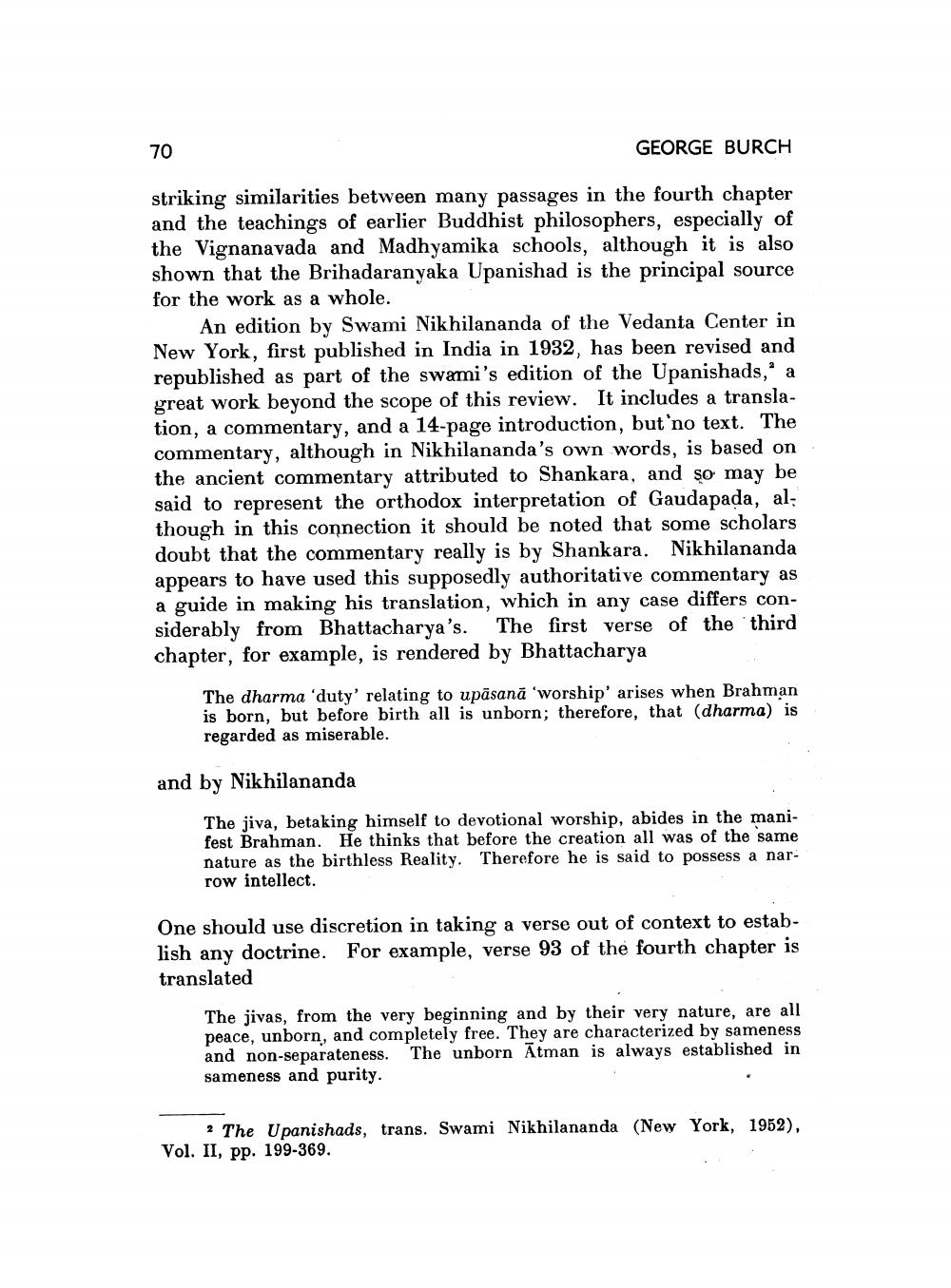Book Title: Recent Vedanta Literature Author(s): George Burch Publisher: George Burch View full book textPage 3
________________ 70 GEORGE BURCH striking similarities between many passages in the fourth chapter and the teachings of earlier Buddhist philosophers, especially of the Vignanavada and Madhyamika schools, although it is also shown that the Brihadaranyaka Upanishad is the principal source for the work as a whole. An edition by Swami Nikhilananda of the Vedanta Center in New York, first published in India in 1932, has been revised and republished as part of the swami's edition of the Upanishads,' a great work beyond the scope of this review. It includes a translation, a commentary, and a 14-page introduction, but no text. The commentary, although in Nikhilananda's own words, is based on the ancient commentary attributed to Shankara, and so may be said to represent the orthodox interpretation of Gaudapada, although in this connection it should be noted that some scholars doubt that the commentary really is by Shankara. Nikhilananda appears to have used this supposedly authoritative commentary as a guide in making his translation, which in any case differs considerably from Bhattacharya's. The first verse of the third chapter, for example, is rendered by Bhattacharya The dharma 'duty' relating to upāsanā 'worship' arises when Brahman is born, but before birth all is unborn; therefore, that (dharma) is regarded as miserable. and by Nikhilananda The jiva, betaking himself to devotional worship, abides in the manifest Brahman. He thinks that before the creation all was of the same nature as the birthless Reality. Therefore he is said to possess a narrow intellect. One should use discretion in taking a verse out of context to establish any doctrine. For example, verse 93 of the fourth chapter is translated The jivas, from the very beginning and by their very nature, are all peace, unborn, and completely free. They are characterized by sameness and non-separateness. The unborn Ātman is always established in sameness and purity. The Upanishads, trans. Swami Nikhilananda (New Vol. II, pp. 199-369. York, 1952),Page Navigation
1 2 3 4 5 6 7 8 9 10 11 12 13 14 15 16 17 18 19 20 21 22 23 24 25 26 27 28 29
